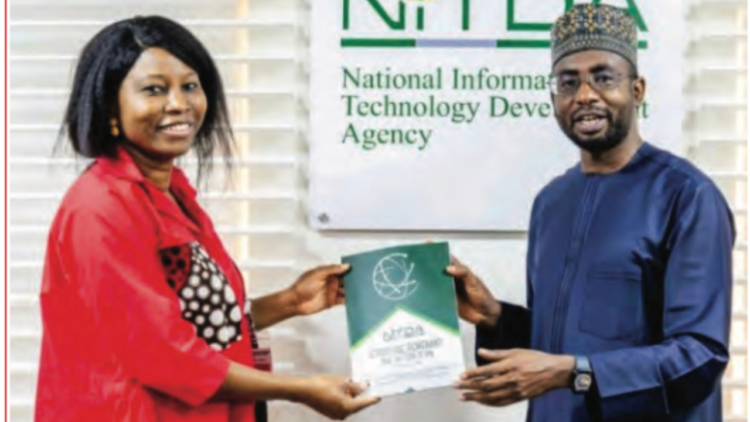The Nigerian digital system has seen a lot of improvements in the last couple of years and this could be strengthened with the implementation of international standards to support digitization policies to enhance trust.
This was the crux of discourse at a Digital Policy workshop, organised by the British Standards Institution (BSI), held in Abuja recently with full participation of the National Information Technology Development Agency (NITDA) and other stakeholders.
Director-General of NITDA Kashifu Inuwa, who opened the discourse, said the agency has a central role as regards standard in digital transformation. He added that the event is imperative as it would deepen the collaboration between the Agency, Standards Organisation of Nigeria (SON) and the British Government and help to enhance digital trust and adoption within Nigeria.
According to Inuwa NITDA is working diligently to build digital trust across boards, in order to reawaken as well as repose confidence in the citizenry who are expected to make use of digital services safely and responsibly.
According to him “there is the need to have standard and a guideline for building our services and digital offering, as well as develop standard for the Nigerian Digital Public Infrastructure, we need international collaboration to get the job done.
“We also need to build a system that can scale beyond Nigeria where our solutions would be indigenous but have global market value.”
The challenges in Nigeria, especially when it relates to e-commerce and online transactions may have over the years negatively impacted on the dwindling trust but with the call for the adoption of international standards, there is hope that every transaction will be trusted in Nigeria.
“With digital trust in place, the plan is to have automated transactions and electronically generated invoice afterwards, this and more are possible but it is not something to be done at a local level, hence, partnering key players like the SON and international bodies like the BSI”, Inuwa said.
The Team Lead, British Standards Institution (BSI), Dr Nigel Croft commended the collaboration stressing that that after the workshop, there will be training sessions for all critical stakeholders in the standards sector of Nigeria to explore the adoption of a standard that can be in line with global best practices.
And in order to build strong institutions and sustain the Nigerian digital economy, NITDA has also made moves to collaborate with the International Financial Corporation (IFC) for a robust regulatory framework to implement the Nigerian government’s policies towards enhancing productivity through technological innovations in diversifying the economy.
The NITDA boss disclosed this development when he played host to a delegation from the IFC, led by Nadege Yameogo, the Corporation’s Senior Economist, to NITDA’s Corporate Headquarters of the agency, in Abuja recently.
Through the mandate given by Nigeria’s President Bola Tinubu, the Ministry in charge of digital economy has articulated the vision of the Information Technology (IT) to enhance productivity through technological innovation in diversifying the country’s economy through a strategic plan with five strategic pillars to achieve this objective.
The five pillars as include, Knowledge, Policies, Infrastructure, Innovation, Entrepreneurship & Capital, and Trade. Knowledge is necessary because it is the foundation upon which countries build a robust and sustainable economy, and it is imperative to create an enabling environment where innovations and entrepreneurship ecosystem could thrive and be commercialised globally.
Inuwa said further “When we invest and we build the infrastructure, it will enable us to trade ‘made in Nigeria’ products and services, as well as our greatest resource, which is our talent.”
The agency all through the years has been re-crafting its Strategic Roadmap & Action Plan (SRAP) policy document in implementing the Ministry’s strategic plan of accelerating the Nigerian collective prosperity through technical efficiency.
The collaboration is to co-design the document, so the digital ecosystem could co-create the strategy and implement it. The document would have eight strategic pillars, in which Fostering Digital Literacy and Cultivating Talent would be the first pillar.
Inuwa said: “We have the National Digital Literacy Framework (NDLF) where we have a target of achieving 95% digital literacy by 2030 and we have a midterm target of 70 percent by 2027.
“So, in the designing of this strategy, we want to get the stakeholders that will execute, because we want it to be a strategy for execution.”
The advantage of this effort is that if the youth population in Nigeria is well harnessed and cultivated; Nigeria could compete with any country globally in terms of rendering services. However, this collaboration also requires the country to invest in deep research of technology.











